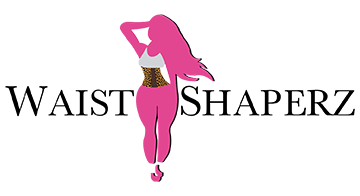5 Tips to Stop Cravings
All Credits go to John Douillard

According to Ayurveda, a craving is the body sending an urgent message to the brain requesting a specific nutrient, chemical constituent, or hormone to turn off an alarm somewhere in the body. To deal with cravings before they arise, we must deal with the reasons the body sounds the alarm. Here are the top five reasons the body sounds the “Craving Alarm.”
1. Low Sugar
Cravings often start out with low blood sugar, or hypoglycemia. This happens when we do not eat enough, skip meals, or eat foods that do not deliver lasting energy. Eating on the run typically leads to the similar damaging effects of eating while stressed, not eating enough, or ingesting and/or craving quick-energy foods. All of the above deliver a quick short-lived surge in energy, followed by a drop in energy or a crash in blood sugar. When the blood sugar crashes, the brain knows exactly what to crave to get the blood sugar back up into the comfort zone.
2. High Sugar
After of years of battling hypoglycemia, the body’s ability to maintain stable energy in the form of blood sugar becomes a challenge. When the blood sugar is low, we crave stimulants of some sort to dig ourselves out of that hole. As the stimulant raises the sugar levels you feel the sense that you are on the way to feeling good. Then when the blood sugar peaks, you feel great, but only for a moment. As soon as the sugar peaks the body rushes to get the sugar out of the blood and you get the sense that you are on the way to feeling bad again. Once the blood sugar crashes, the brain chooses another stimulant to start the process all over again. Folks who crave, spend much of their day on the way to feeling good or on the way to feeling bad. Sadly, during the blood sugar high, the “feeling really good” part only lasts for a few moments!
3. Stress
As you can imagine, the amount of stress put on the nervous system from these high and low swings is extraordinary. Every time the blood sugar crashes, the emergency alarms goes off in the body, triggering a fat-storing, sugar-burning, disease-producing chemistry. The major stress-fighting hormone released that responds to the “Craving Alarm” is cortisol, and cortisol is directly linked to a host of degenerative health issues. Insulin is also produced at high levels in an effort to get the excess sugar out of the blood. Unfortunately, both of these hormones are toxic and store fat around the belly four times faster than anywhere else in the body. This fat, while it also may be unfashionable, is extremely metabolically active and linked to a variety of degenerative health issues.
4. Fat Burning
When the body becomes habituated to a life with excessive stress hormones like cortisol and insulin, the ability to burn fat is replaced with strong desires and incessant cravings for sweets, breads, comfort foods or stimulants. Satisfying these cravings only spikes and drops the blood sugar, forcing the body to become more dependent on different forms of sugar or stimulants for energy. Both of these deliver only short bursts of energy, which deconditions the body to burn fat as a source of fuel. Fat burning is probably the best antidote for the degenerative woes of cravings. Fat burning is less about weight loss and more about the unsung benefits of being a good fat burner. Becoming a good fat burner delivers long-lasting, sleep-through-the-night energy that does not crash. It is a stable, non-emergency fuel that supports the ability to cope with stress and the repair and rebuilding of the nervous system. Fat burning offers the cells, and particularly the brain, a new source of fuel that can replace the dangerous highs and lows of sugar.
5. Snacking vs. Meals
If you open the textbook of medicine and read up on hypoglycemia, which is typically the first cog in the wheel of the craving chemistry described above, you will find a recommendation to eat six small meals a day as a medicinal diet for hypoglycemia. When blood sugars are rising and falling, eating six small meals can help keep the blood sugar crashes and the surges to a minimum, and help stabilize the symptoms of hypoglycemia. Over the past twenty years, the “six meals a day” concept has attempted to solve the problems relating to unstable blood sugar such as cravings, highs and lows in blood sugar, fatigue and mood-related issues.
While it may offer temporary and symptomatic relief, it rarely delivers a permanent solution. It never resets the ability to be a good fat burner. For example, if you eat a small meal every 2-3 hours, why would the body burn any of its fat stores? The body would feed off the buffet line every 2-3 hours – burning the small meals as fuel, leaving the body’s fat stores alone.
If you want to become a better fat burner, you must give it a reason!
To start: eat three relaxing meals a day.
If you eat nothing in-between each meal, and particularly between supper and breakfast, the body will be forced to burn its fat between meal times. Even a small snack breaks the between-meal fast and replaces fat burning with the burning of the snack as fuel (energy). It may take some time to re-educate the body to feel satisfied with just three meals a day, but it is the first step to permanently resolving the craving chemistry roller coaster!

Comments
0 Comments